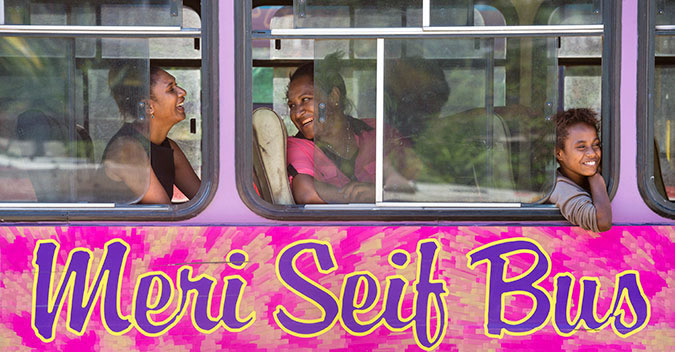UN Women National Committee for Aotearoa NZ
1990 –
Theme: Political
Known as:
- New Zealand National Committee for UNIFEM
1990 – 2011 - UN Women National Committee for Aotearoa NZ
2011 –
This essay written by Rae Julian was published online in Women together: a history of women's organisations in New Zealand in 2019.
In December 1976, the United Nations (UN) established the UN Development Fund for Women (UNIFEM), as the Voluntary Fund for the United Nations Decade for Women. This decade had been declared during 1975, International Women's Year, and was celebrated throughout the world. A number of countries later set up national UNIFEM committees, in order to maintain links with the UN processes for women.
The New Zealand National Committee for UNIFEM was planned in 1989, following a visit to Helsinki by Mary Sinclair in 1988 to attend the Third Global Meeting of National Committees for UNIFEM. Officially launched in May 1990, the committee had its first meeting in June 1991. Its aims were to lobby the New Zealand government for increased funding for UNIFEM, and to publicise the work of the Fund throughout New Zealand, as well as encouraging non-governmental organisations to promote and support the Fund on behalf of women worldwide.
By 1995, a UNIFEM co-ordinator had been appointed and regional committees were operating in Northland, Auckland, Wellington, Christchurch and Dunedin, with some sponsorship from Westpac bank. Funding was raised from 1993 onwards to support UNIFEM projects, as well breakfasts throughout the country to mark International Women’s Day (8 March).
It became clear during the early 2000s that more needed to be done to empower the voices of women at the UN. After long years of negotiations between member states, women’s organisations and civil society, the four distinct parts of the UN system that focused exclusively on gender equality and women's empowerment were consolidated into one entity, UN Women, to be led by an Under-Secretary-General – an increase in status. Formally launched in 2010, UN Women became fully operational the next year, when the 17 national committees around the world automatically became committees of UN Women.
From 2011 the UN Women National Committee for Aotearoa NZ worked both domestically and within the Pacific region to promote gender equity and the empowerment of women. The primary areas for attention were violence against women, leadership and participation, and economic empowerment.
A number of Pacific projects were supported, in partnership with the sub-regional office of UN Women, based in Suva, Fiji. A comprehensive attempt to promote women’s participation in the electoral process in the Marshall Islands, both as candidates and in support of women candidates, had some success at the local government level, but the barriers to women becoming MPs, which were common throughout the Pacific, prevailed.

UN Women/Marc Dozier
Women ride a Meri Seif Bus in Port Moresby, Papua New Guinea.
The New Zealand committee also contributed to two projects demonstrating the practical help UN Women could provide for Pacific women: a toilet block for Solomon Island women market vendors in Honiara, and the Meri Seif [Safe Women] Bus Project in Port Moresby in Papua New Guinea, providing safe, free transport for women only. This was set up in response to a 2014 UN Women survey showing that when women and girls there used public transport, including buses and taxis, more than 90 per cent experienced some form of violence, including sexual remarks, inappropriate touching, and indecent exposure, as well as extortion, robbery, threats and intimidation. By 2018, the project was training its first female bus drivers.
International Women’s Day continued to be a highlight of the annual programme in New Zealand, with events in centres around the country organised by committee members. The main feature was the regularly sold-out fundraising breakfast at Parliament, held in conjunction with the Wellington branch of Zonta; from 2018 this was live-streamed nationally.
The Women’s Empowerment Principles (WEPs), launched in New York in 2010, were a joint endeavour by UN Women and the Global Compact. [1] The Principles emphasised the business case for corporate action to promote gender equality and women's empowerment, informed by real-life business practices and input gathered from across the globe. They sought to point the way to best practice by highlighting the gender dimension of good corporate citizenship.
The New Zealand WEPs campaign began in 2012 in partnership with Business and Professional Women New Zealand, and later expanded to include the Human Rights Commission, Diversity Works (formerly the Equal Opportunities Trust), and Zonta International District 16. By 2018 60 local businesses had become signatories and responded to an annual survey to demonstrate their compliance with the Principles. [2] Those scoring highest received White Camellia Awards, as models of good WEPs practice.
UN Women also initiated HeForShe, a solidarity campaign for gender equality. Its goal was to engage men and boys as agents of change for the achievement of gender equality and women’s rights, by encouraging them to take action against inequalities faced by women and girls. By 2018 New Zealand had 22 HeforShe Champions, including MPs, local body politicians, the Chief Ombudsman, church leaders, diplomats, trade union leaders and businessmen. [3]
Annual meetings of national committees with the international and regional staff of UN Women gave opportunities to share experiences and discuss challenges, as well as to learn about current and future activities by UN Women in New York.
Rae Julian [4]
Notes
[1] See https://www.unglobalcompact.org/
[2] See https://unwomen.org.nz/womens-empowerment-principals/
[3] See https://www.heforshe.org/en
[4] National President, UN Women National Committee for Aotearoa NZ, 2008–2011
Further sources
UN Women National Committee Aotearoa New Zealand: https://unwomen.org.nz/

Community contributions